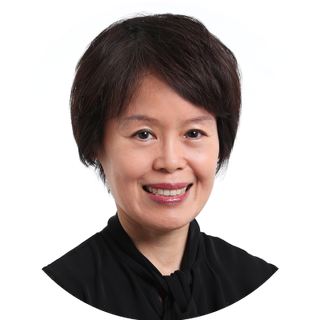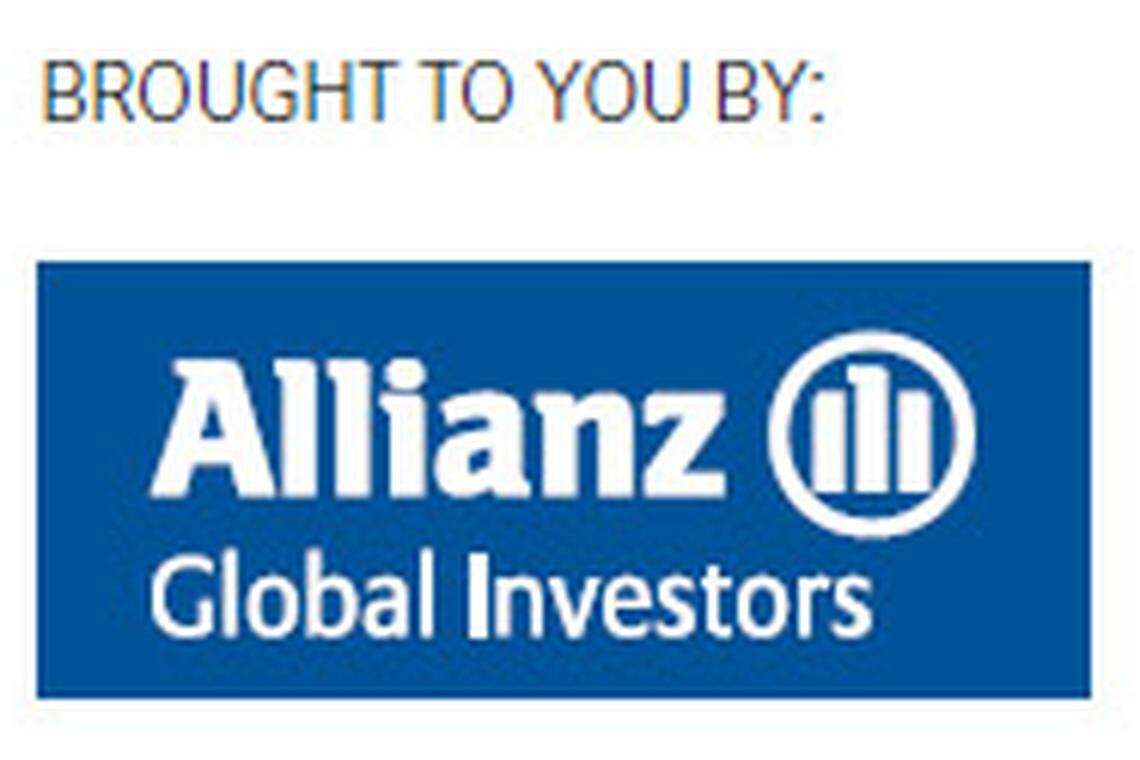Riding the AI wave
Allianz Global launches an artificial intelligence fund that offers investors a chance to invest at a relatively early stage of AI development

THE concept of artificial intelligence (AI) - where machines are trained to mimic the human capacity to think and learn - has been around for decades, and has long inspired a degree of wonder, excitement and even fear. In recent years, however, AI has crossed a threshold from a nascent, exploratory technology to one that is increasingly attracting vast sums of investment in R&D and embraced as the technology of the future.
Allianz Global Investors believes AI will drive major disruption and transformation in industries including finance, healthcare and transportation. It has launched a new fund, the Allianz Global Artificial Intelligence Fund, that offers investors a chance to invest at a relatively early stage of AI development.
Says AllianzGI director and senior research analyst Stephen Jue: "We think AI will be woven into everyday life and will make services better. We think the first wave of AI is human-assisted, helping to make jobs better, taking the workload off us and making us more productive. This technology is very broad and will be horizontally adopted in every industry and drive new levels of productivity, time savings and enhancements."
Some examples of applications in the consumer field today include iPhone's digital assistant Siri and Amazon's voice-activated Alexa, which is embedded into its Echo speaker and can perform a range of mundane functions such as checking your calendar and controlling compatible devices in a smart home. There are also driverless cars and in healthcare, AI is helping to read CT scans and x-rays among other things.
The potential to drive economic gains is expected to be dramatic. Accenture and Frontier Economics expect the widespread use of AI to double economic growth rates of advanced countries by 2035. PwC expects AI to drive global GDP gains of US$15.7 trillion by 2030.
AllianzGI claims that the fund is the first to focus on the AI theme. It was launched in 2016 in Japan with great success, raising over US$2 billion mainly from retail and private clients. The fund recently registered for sale in Singapore is Luxembourg-domiciled and invests in the same strategy.
Mr Jue says the portfolio aims to gain exposure to three layers of AI adoption. The first is AI infrastructure, which includes semiconductor and software companies that make the building blocks of AI. Some holdings in this layer include Nvidia, which makes high-speed graphics processing units that have become the industry standard for deep learning in AI systems. The second layer comprises companies developing AI applications, such as intelligent automation, robotics and machine vision. The third is AI-enabled industries, including automotive, education and healthcare.
"We look at companies in three areas - those deploying AI or enabling technologies in the AI ecosystem; companies embedding AI in new software or applications; and those adopting AI in business processes. Companies in those three areas have to show some level of AI involvement. On a fundamental basis, we meet the companies and talk to them about their AI initiatives and how these can make a more meaningful impact on their businesses. We think AI is a big theme that will drive a lot of innovation. Over the long term, companies that innovate will have higher stock appreciation and are more valuable."
The stock-selection process begins with about 1,000 companies, which are eventually narrowed to 150 to 200 with "strong focus" on AI. The portfolio targets holdings of 40 to 100 names. At the moment there are 55 holdings. "AI is still a relatively small percentage of most companies. We're looking for AI to be a much more meaningful part in three to five years. We want real companies with real initiatives, so we look at how much R&D is put into AI, and look at their successes in recent small AI projects as a way to differentiate real investments."
Some examples of AI adoption are those by Baidu and Salesforce.com, which are in the portfolio. Baidu, for instance, is staking its future on AI. It has partnered the Chinese government to build the country's first national AI laboratory. Projects in the works include an open-source initiative for driverless vehicle technology and Alexa-like voice activated personal assistants. Salesforce.com has begun to use AI; its engine is Einstein which is built into its platform and focused on "smarter" customer relationship management which enables users to develop insights, predict outcomes and automate tasks.
Valuations in the tech sector, says Mr Jue, are "relatively reasonable" despite the outsized gains of mega-cap FANG (Facebook, Amazon, Netflix, Google) and BAT (Baidu, Alibaba, Tencent) stocks. "We haven't had an IPO cycle of AI companies, that's why I really don't think there is a bubble."
In the dotcom heyday in the late 1990s to early 2000, tech companies traded at lofty multiples of 50 to 70 times. "The tech S&P sector today is trading at 20.5 times PE, and it has been at 19 to 20 times for the last four to five years. Despite the outperformance of technology in the last couple of years, it has really been earnings and topline revenue driven. Multiples haven't expanded much and you've seen sales growth, earnings growth and cashflow drive the outperformance."While the market isn't cheap, companies have been delivering the earnings to drive growth. In 2018, with tax reform and incentives for capex, we think the cycle could look different - broader, more corporate enterprise and beyond the FANG and BAT stocks that have been leaders."
The fund aims to invest in mid-cap growth stocks. Volatility is expected to be in line with tech-sector funds. "Markets have shown low levels of volatility. With anything there is always a pause when we've had good runs. Everyone would want a 5 to 10 per cent pullback because we want to buy more great companies. Any pullback will be relatively shallow. "The Fed in the US is gradually raising rates but at a measured pace. You're seeing a broad global synchronised growth. So markets can continue to grind upwards. There is a little caution in the near term in the new year, but we're constructive for the full year."
The unknown, he says, is geopolitical risk. Another area that the firm is watching closely is government regulation around AI. "If anything slows adoption it would be regulations. We've been pleasantly surprised that governments have talked about AI openly and are putting in place policies to test it, like automated driving. They realise it will impact parts of the labour force and understand there will be societal impact, and focus on job retraining. Everyone understands that while you can slow down the technology, it's coming." W

BT is now on Telegram!
For daily updates on weekdays and specially selected content for the weekend. Subscribe to t.me/BizTimes
New Articles
Digital Core Reit Q1 distributable income slips 2.4% to US$10.6 million
BT subscribers can now share 5 premium articles a month with unlimited number of non-subscribers
First Reit reports 3.2% lower Q1 DPU of S$0.006 amid interest rate, forex headwinds
Vietnam holds first gold auction in 11 years to stabilise market
How Hudson Yards went from ghost town to office success story
Hot stock: Nanofilm jumps 13.1% amid heavy trading on improved Q1 results
